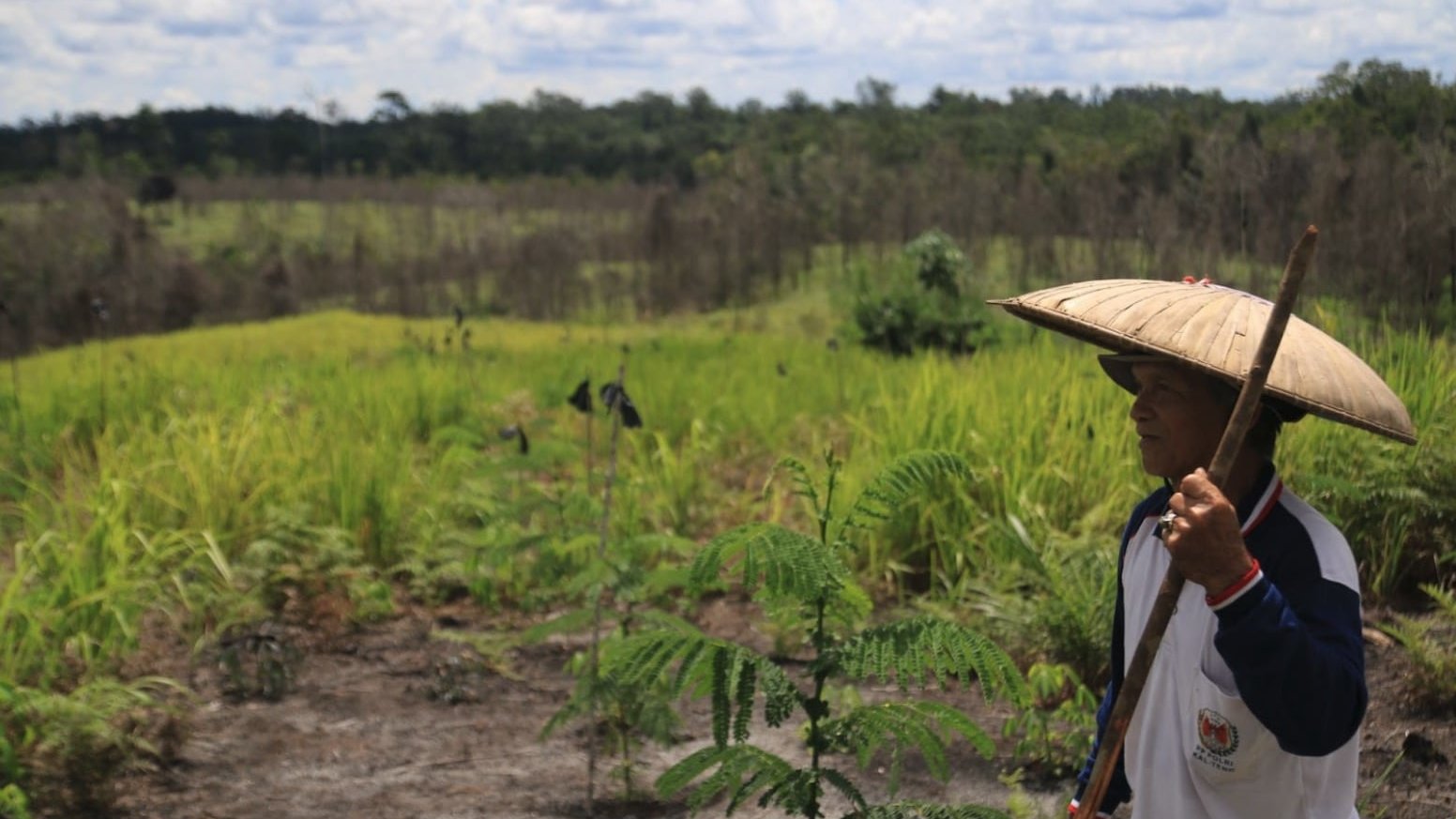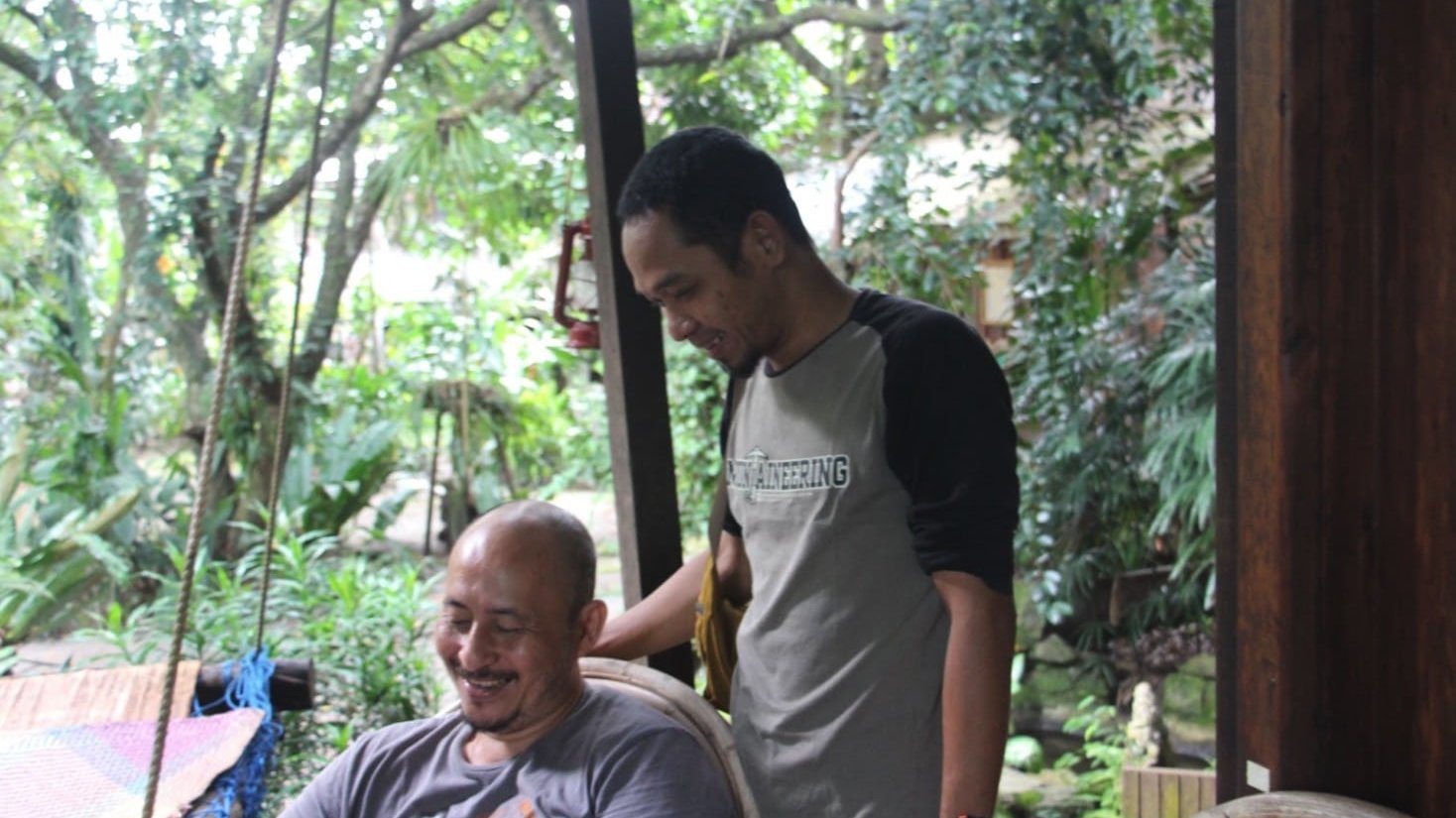
The timber and forest goods industry is one of the biggest business sectors in Indonesia, contributing to the country’s economy and employing millions of people. And while making use of what nature has to offer is a good thing, these profits can come at a price. Because when natural resources are used at an unsustainable rate, it results in a downward spiral that affects the environment as well as the local population. Two of our team members report on their former jobs in the timber industry – and their decision to pursue a career change.
At Fairventures, we are convinced that reforestation means more than just planting trees. Our approach strives for an ecologically, socially and also economically sustainable solution that benefits everyone. For more than eight years, we have been working to empower people to get the most out of natural resources in a way that we refer to as a “good forest,” while also imparting knowledge about how to properly maintain it.
To do this, we have assembled a team of experts with a wide range of skill sets – and various backgrounds. Take Charles Tanaka and Yunizar, for example, two of the people we trust to build a sustainable value chain for the local communities. Before joining us on this fantastic journey, both of them used to work in the forest and timber industry. We talked with them about the career changes they made and their motivation behind them.
Yunizar explains that the company he used to work for was in the business of transforming primary forests into conversion forests. Forest clearings have always been ongoing, he claims, in order to facilitate industrial objectives, but now, through Fairventures, he has a new perspective and feels compelled to work in the forest while still preserving the natural environment. Moreover, Yunizar is convinced that the trees we provide have a high economic value for farmers, making his new effort so much more beneficial.
Meanwhile, Charles shares the story of his initial plan to retire from work completely, until he received an offer to work for Fairventures which gave him second thoughts. After working in the timber industry for over twenty years, he came to the realization that he had been a part of massive deforestation. For Charles, joining our team presents some form of redemption to the nature that had given him a long career journey in the timber industry.
“It is quite difficult to change people’s mindset who are accustomed to taking things from nature without regard for preservation.” Charles explains. Still, he is optimistic that people will soon realize the negative effects of taking without giving and the imbalance this behavior creates. “This is something we should aim to cut down on. From this vantage point, I can see how opposite the things I used to do are from what I’m doing today.” he said.
Charles and Yunizar are undergoing a paradigm shift. As previously, they focused solely on how they could make the most money for the company, they now serve as middlemen and companions for a successful coexistence between society and nature. Their success is measured not only in the number of planted trees or the amount of restored land – but also in the benefits they create for the community, and the number of individuals they can assist in improving their livelihoods without endangering nature.
Charles explains, “What we can do is to educate and raise awareness so that people may plant and receive the benefits while also passing on this mindset to the next generation. Their main concern is how to survive, so our duty is to figure out how to transfer that into work steps for reforestation.”
Millions of people are profiting off the timber and forest goods industry in Indonesia. And while this is not necessarily a bad thing, we must not forget to reflect on the consequences of our behavior. Yunizar and Charles make a case for using what nature has to offer, whilst also thinking about what we can give back in exchange for such a favor. Their stories prove that it is never too late to take responsibility.
